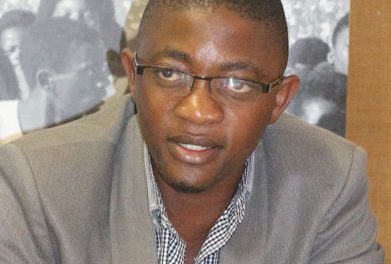
Policemen are not above the law
Dear Editor,
The Namibian Constitution is the Supreme law of the country. That means, no one is above the law. Unfortunately, there are individual, elected and or appointed officials who think they are more Namibian than others or they are a law unto themselves.
On Saturday, around 12h00, I heard that there will be a demonstration, demanding the delayed 2009 elections verdict, in front of the Supreme Court. My arrival coincided with the Namibian Police, trying to re-erect the barricade line around the Supreme Court.
They, however, looked impatient and uncomfortable with the onlookers and tourists who frequent that area of Michael Scott Street. While taking some good photos of the barricaded part I could hear one police officer asking the others: “Who is that one?”
Later, a young male police officer approached me and inquired “What is your position here?” Before I could ask for clarity, he followed up with an instruction: “Can you identify yourself?” Understanding the political pressure the security officers are facing and mindful of how they are able to make things hard for you when they turn themselves into law, I told the fellow my name and that I am a citizen of Namibia. In return, I requested the officer to identify himself as the law requires. He completely refused.
Our debate attracted more officers to come and intervene. While trying to justify their unlawful interrogation of me and to avoid being seen acting against their mandate, they resorted to explaining to me that I am a risk to “obstructing the police work” and they may “take action” if I continue taking photos without their permission.
While they can only be identified by uniform, they were demanding that I have identification on me. One older police officer took out a copy of the Namibian Constitution which he claims I am violating for taking the photos of the police officers. I then had the difficult task to explain to the law enforcement officers that they were the ones violating the laws they are supposed to protect and enforce. I explained to them that I don’t need permission to take photos at public places and that they are public officials too. When I told them that I have the right to know all their names and that I can freely take their photos, they abandoned me and [went] back to the entrance of the Supreme Court. By that time, the demonstrators had converged.
Steven Mvula
Human Rights Activist











































